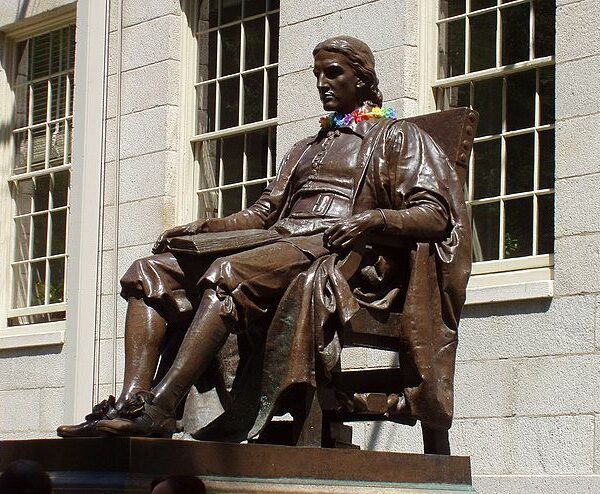
A major university has shocked liberals by dropping one of their most saced practices. Ohio State University has moved to sharply limit the use of land acknowledgements, aligning itself with a new state mandate requiring public institutions to remain neutral on political and social controversies.
Announced in late August, the policy bars land acknowledgements from appearing in syllabi, websites, campus events, and other official materials. They will be permitted only in academic settings where they are directly relevant to course content. The restriction stems from Senate Bill 1, passed in March, which compels Ohio’s public universities to avoid taking institutional positions on issues deemed unrelated to their core mission.
University guidelines now classify land acknowledgements as advocacy statements rather than neutral historical notes, writes The College Fix. The policy, drafted by Ohio State’s SB 1 Implementation Committee, was framed as an effort to balance compliance with state law while preserving faculty autonomy in the classroom.
Ben Johnson, a university spokesperson, emphasized that land acknowledgements have not been abolished entirely. “Faculty may incorporate them in classes where they are relevant to the subject matter,” he said, drawing a distinction between institutional posture and individual academic judgment.
Still, the move has drawn pushback. Richard Finlay Fletcher, an art professor, argued on social media that “every course could justify a land acknowledgement” given the university’s foundation as a land-grant institution. Established in 1870 under the Morrill Act of 1862, Ohio State was endowed with property taken from Indigenous nations, including the Shawnee, Delaware, and Miami. Critics contend that acknowledging those origins is not political activism but a recognition of fact.
The university has signaled that it will continue to support research and teaching about its historical ties to Indigenous peoples, but it will no longer issue broad statements that could be interpreted as advocacy. The shift reflects a larger trend in Ohio politics: the assertion that public universities should abstain from symbolic gestures associated with contemporary progressive causes in order to maintain neutrality.
Yet even as Ohio State redefines neutrality by stripping away politically charged rituals, another Big Ten institution is moving in the opposite direction, entangling itself in a foreign contract that places strict limits on speech, according to The Washington Free Beacon.
Northwestern University’s agreement with the Qatar Foundation, which bankrolls its Doha campus, prohibits students, faculty, and even family members from criticizing the Qatari government, according to a recent House Committee on Education and Workforce interview with outgoing university president Michael Schill.
The August 5 testimony revealed that Northwestern University in Qatar (NU-Q) operates under a contract mandating compliance with Qatari laws and adherence to the emirate’s cultural and religious norms. Qatar’s statutes criminalize criticism of the ruling family and its symbols, impose penalties for online speech, and sharply curtail political dissent. Asked if NU-Q must follow such restrictions, Schill admitted the campus “has to” comply, while acknowledging he did not know the full scope of the laws.
The interview exposed additional layers of influence. Anti-Semitism training offered at Northwestern’s U.S. campus is absent in Doha. Emails from Qatar Foundation officials to NU-Q administrators urged faculty to circulate talking points praising Qatar’s diplomacy in Palestine and Afghanistan, alongside messages affirming the regime’s “unwavering support for Palestine.” Those communications, Schill noted, were distributed across other U.S. institutions operating in Doha, including Georgetown, Carnegie Mellon, and Weill Cornell Medicine.
Since 2008, Northwestern has received $737 million from Qatar, mostly for operational expenses, though some funds flow to its Evanston campus through overhead and communications initiatives. Schill characterized those financial benefits as “minimal.” The current contract expires in 2028, and Northwestern is reviewing whether to extend the relationship.
The revelations arrive as Schill faces criticism over his handling of anti-Israel protests on the Evanston campus. Last spring, he opted to negotiate with encamped students rather than clear them by force, ultimately agreeing to hire two Palestinian professors and provide scholarships for five students from Gaza. One of those hires, visiting professor Mkhaimar Abusada, has links to groups associated with Hamas — ties Schill downplayed, citing Abusada’s scholarly reputation.
Northwestern has defended its Qatar campus, stressing that it expands access to American higher education, particularly for women in the Gulf region, and that it aligns with U.S. foreign policy objectives. But backlash has mounted. On September 4, Schill announced his resignation, following the Trump administration’s decision to withhold $790 million in federal funds over what it described as the university’s failure to address anti-Semitism. He will step aside once an interim leader is appointed, then return to teaching law after a sabbatical.
The contrast is striking. At Ohio State, a new law has pressed administrators to retreat from public statements that critics say smuggle politics into the classroom. At Northwestern, millions in foreign funding have entangled an elite American university in the censorship machinery of an authoritarian regime. The contrast would make anyone wonder if we’re standing at a fork in the road.
[Read More: NYC Race To Pit Two Dem Dynasties Against Each Other]











